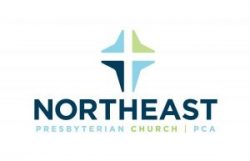Worship is a way of life that takes place not just at 11:00 on Sunday morning, but every other hour of the week (John 4:20-24). Through this “Call to Worship,” we want to share some thoughts about worship, scripture verses, hymns, and songs to teach and encourage you as you seek His face daily and then hopefully together with us on Sunday!
Maria Currey, Assistant Director of Music – Traditional
Hymn Highlight – “Come, Thou Fount of Every Blessing” by Robert Robinson
In his youth, Robert Robinson was apprenticed to a barber in London and lived a wild and reckless life. But one day he heard a sermon by George Whitefield on the stern words of John the Baptist to the Jewish leaders of his day, “Brood of vipers! Who warned you to flee from the wrath to come?” (Matt. 3:7). The Spirit of God convicted the wayward young man and he put his faith in Christ.
The hymn begins:
Come, Thou Fount of every blessing,
Tune my heart to sing Thy grace;
Streams of mercy, never ceasing,
Call for songs of loudest praise.
The song is autobiographical in its confession of a proneness to wander away from the Lord. Although a man of intellectual brilliance, Robert Robinson was, in the words of Scripture, “unstable as water” (Gen. 49:4). In his later years he drifted away from God. This weakness is reflected in a later stanza of the hymn above:
Prone to wander, Lord, I feel it,
Prone to leave the God I love;
Here’s my heart, O take and seal it,
Seal it for Thy courts above.
In a spiritually backslidden condition, the author was traveling in a stage coach one day. His only companion was a young woman unknown to him. In the providence of God, and not realizing who it was she spoke with, the woman quoted “Come, Thou Fount of Every Blessing,” saying what an encouragement it had been to her. And try as he might, Robinson could not get her to change the subject.
Finally, he said, with tears in his eyes, “Madam, I am the poor unhappy man who composed that hymn, many years ago. And I would give a thousand worlds, if I had them, to enjoy the feelings I then had!” Gently, she replied, “Sir, the ‘streams of mercy’ are still flowing.” He was deeply touched by that. As a result of the encounter, he repented. His fellowship with the Lord was restored through the ministry of his own hymn, and a Christian’s willing witness.
In the ways we are prone to wander, may the God of mercy woo our hearts to contrition and pure worship! Sealed for His courts above!
By Robert Cottrill, Adapted by Maria Currey
Kerri Roberts, Assistant Director of Music – Contemporary
A very simple definition of worship is “the believer’s response of all that they are – mind, emotions, will, body – to what God is and says and does” (Warren Wiersbe).
What does it practically mean to worship? In what ways do we respond to God with our minds, emotions, wills, and bodies? In the Old Testament our English words “worship” and “praise” are actually rather streamlined translations of various Hebrew words. Over the next few weeks I’d like to examine some of the more specific translations of these words as we discover together the various ways that scripture exhorts us to respond to God.
Oh come, let us worship and bow down; let us kneel before the LORD, our Maker!
For he is our God, and we are the people of his pasture, and the sheep of his hand.Psalm 95:6-7a
There are two words in the Bible most translated as worship. In Hebrew, shachah (Strong’s H7812), which occurs 220 times in the Old Testament, is defined as “to depress, i.e. prostrate (especially reflexive, in homage to royalty or God).” This word is also translated in the Authorized Version as “bow down, crouch, fall down, humbly beseech, do obeisance, do reverence, make to stoop, worship.” The Greek counterpart is proskyneō (Strong’s G4352), which carries the same definition, but also adds the detail “to kiss the hand, in token of reverence”. I think we can all see the mental picture that each of these definitions conveys. Is this speaking only of a literal bowing before God with our physical bodies? Certainly that can and should be our response at times. But is there more to it? Should it be also a deep posture of the heart, the mind, the will, the emotions? In John 4:24 Jesus said, “God is spirit, and those who worship him must worship (proskyneō) in spirit and truth.” What does it mean for you and I to prostrate all that we are before God in spirit and in truth in our personal and corporate worship?
This week as we worship together on Sunday morning we will have the opportunity to rehearse much of the great truth of Who God is and what He does, and specifically what He has done for us through His Son Jesus’ death on the cross. We respond with these lyrics of worship from At the Cross (Love Ran Red):
Here my hope is found, here on holy ground,
here I bow down, here I bow down
Here arms open wide, here you saved my life
here I bow down, here I bow downAt the cross, at the cross, I surrender my life
I’m in awe of you, I’m in awe of you
Where your love ran red, and my sin washed white
I owe all to you, I owe all to you, Jesus


